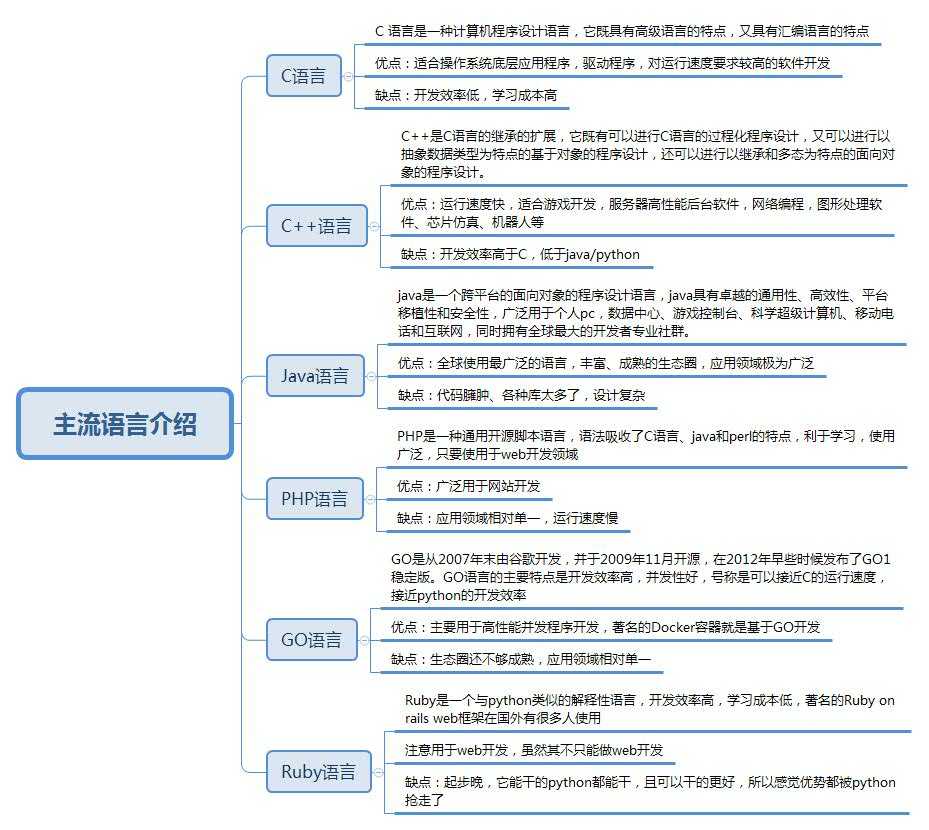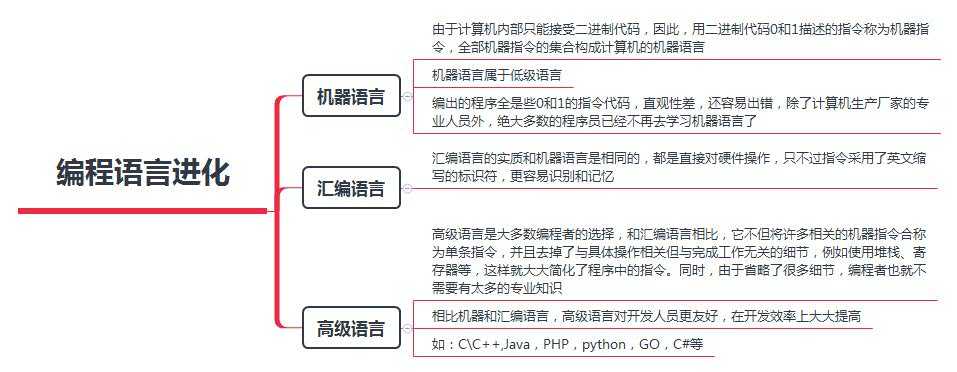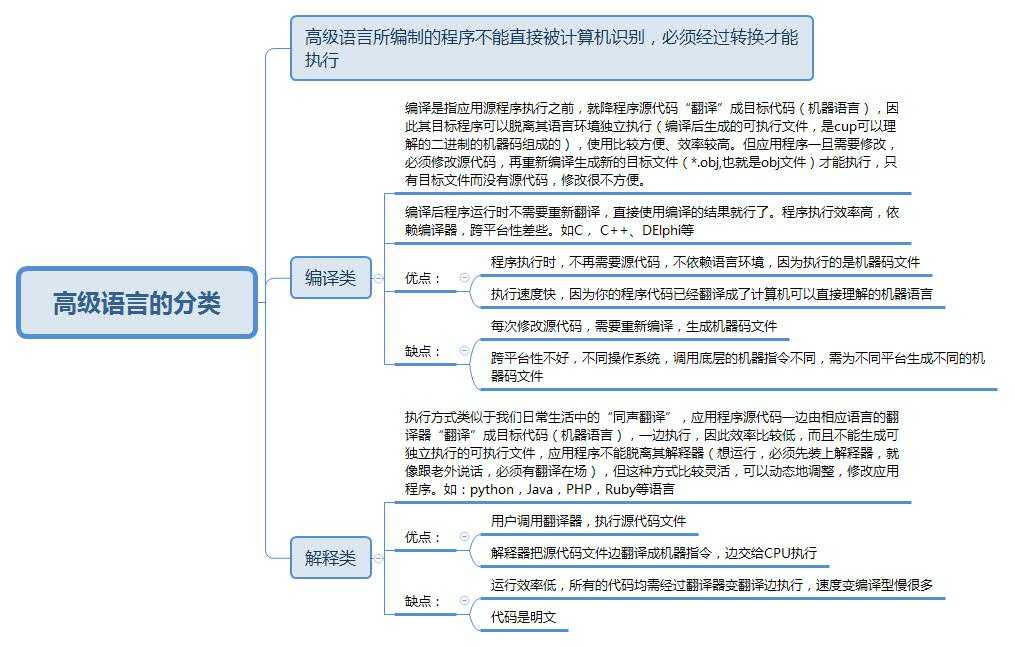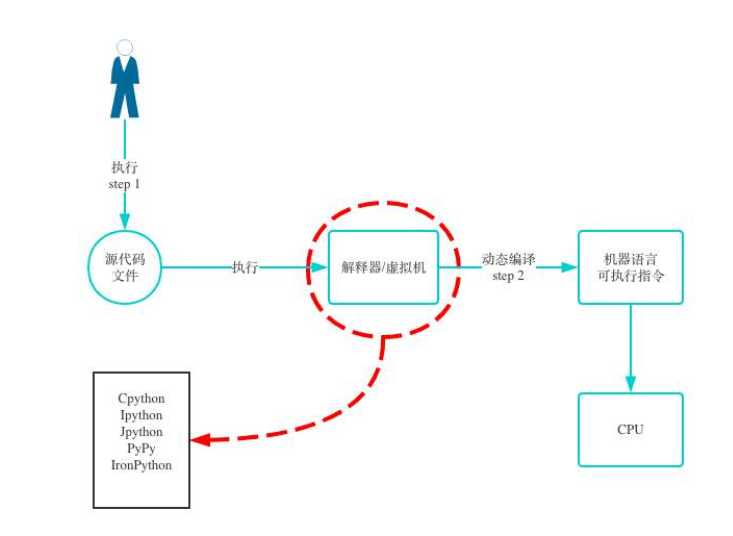标签:程序 使用 种类 控制 ado 开始 lam 分析 增加
一、主流语言的介绍

二、什么是编程?为什么要编程?
三、编程语言的进化

高级语言的分类:

四、Python发展史
1989年,Guido开始写Python语言的编译器。
1991年,第一个Python编译器诞生。它是用C语言实现的,并能够调用C语言的库文件。从一出生,Python已经具有了:类,函数,异常处理,包含表和词典在内的核心数据类型,以及模块为基础的拓展系统。
Granddaddy of Python web frameworks, Zope 1 was released in 1999
Python 1.0 - January 1994 增加了 lambda, map, filter and reduce.
Python 2.0 - October 16, 2000,加入了内存回收机制,构成了现在Python语言框架的基础
Python 2.4 - November 30, 2004, 同年目前最流行的WEB框架Django 诞生
Python 2.5 - September 19, 2006
Python 2.6 - October 1, 2008
Python 2.7 - July 3, 2010
In November 2014, it was announced that Python 2.7 would be supported until 2020, and reaffirmed that there would be no 2.8 release as users were expected to move to Python 3.4+ as soon as possible
Python 3.0 - December 3, 2008 (这里要解释清楚 为什么08年就出3.0,2010年反而又推出了2.7?是因为3.0不向下兼容2.0,导致大家都拒绝升级3.0,无奈官方只能推出2.7过渡版本)
Python 3.1 - June 27, 2009
Python 3.2 - February 20, 2011
Python 3.3 - September 29, 2012
Python 3.4 - March 16, 2014
Python 3.5 - September 13, 2015
Python 3.6 - 2016-12-23 发布python3.6.0版
五、Python解释器的种类
Cpython,Ipython,PyPy,Jpython,IronPython

六、目前python的主要领域
标签:程序 使用 种类 控制 ado 开始 lam 分析 增加
原文地址:https://www.cnblogs.com/mike-liu/p/8805311.html